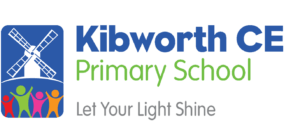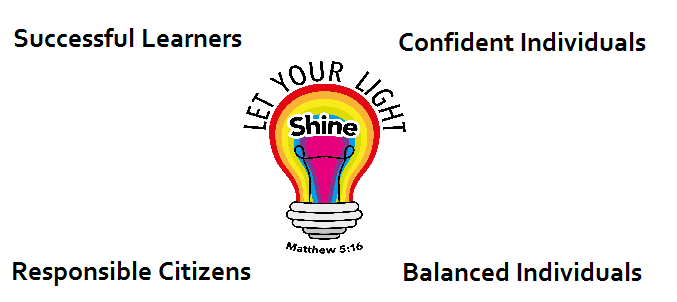“Life is a math equation. In order to gain the most, you have to know how to convert negatives into positives.”

Intent
Developing Mastery
We are committed to ensuring that all pupils achieve mastery in the key concepts of mathematics, appropriate for their age group, in order that they make genuine progress and avoid gaps in their understanding that provide barriers to learning as they move through education. Our Mathematics curriculum reflects a greater emphasis on mastery of the key skills of mathematics to ensure children have adequate time to develop their fluency, reasoning, and deeper understanding before moving onto a new concept. Assessment for Learning, an emphasis on investigation, problem solving and the development of mathematical thinking and a rigorous approach to the development of teacher subject knowledge are therefore essential components to the schools approach to this subject.
Aims and Purposes of Maths – Let your Light Shine
Children should:
- Develop secure mathematical concepts and skills according to their ability.
- Become fluent mathematicians with a solid understanding of the concepts in mathematics.
- Develop an ability to reason and problem solve.
- Progress and develop clear and logical thought.
- Learn to use and apply mathematical knowledge, skills and vocabulary in different contexts including everyday life.
- Learn that mathematics has meaning and relevance to their own lives.
Implementation
Planning, Teaching and Management
The Foundation Stage
Maths is taught as part of the Area of Learning designated as ‘Mathematics’ in the EYFS Curriculum. The EYFS Curriculum is made up of two strands: Numbers and Shape, Space and Measure. The children will receive some whole class and adult led maths teaching and they have access to independent child initiated maths activities daily. Children are given opportunities to work on maths activities both indoors and outdoors. These activities are planned based on the main areas as outlined in the EYFS curriculum. EYFS staff also provide opportunities for the children to work on their maths targets both independently and as guided groups. As in the rest of the school, the Maths planned builds on previous learning and allows time for children to develop ‘mastery’ in the key areas of Mathematics without moving onto a new concept too quickly.
Planning is updated daily taking into account previous learning. This ensures the maths activities are appropriate and relevant to the children’s learning needs and their interests. Maths activities in Continuous Provision are planned taking into account both the children’s interests and curriculum coverage.
Key Stage 1 and 2
Planning
The New National Curriculum has several strands
- Number: number and place value, addition and subtraction, multiplication and division, fractions, percentages (Yr 5 & 6 only)
- Measure
- Geometry: properties of shape, position and direction
- Statistics (Year 2 onwards)
- Algebra (Yr 6 only)
- Ratio and Proportion (Yr 6 only)
Planning Key Stage 1 and 2
Short term plans are produced weekly by individual class teachers. These plans include opportunities to review, teach, practise and apply skills in all strands. Additionally short term plans include opportunities to work on non negotiable end of year targets and develop the children’s arithmetic skills.
Teaching
Key Stage 1
In Key Stage 1 children have a daily mathematics lesson of approximately 60 minutes. Teachers in Key Stage 1 also plan and provide opportunities for children to use and apply maths knowledge and skills in other areas of the curriculum.
A typical lesson in Key Stage 1 consists of 3 main components. The timing and organisation of each component within a maths lesson may vary.
- Oral / mental calculation
This will involve whole-class or same ability group work to rehearse, sharpen and develop mental and oral arithmetic maths skills.
- Main teaching and independent learning
A short teaching input and lots of opportunities for pupils to calculate the problem or practise the skill, which will the use of CPA, between whole class, paired, grouped and individual work.
- Mini plenaries and Plenaries
These are a vital part of every maths lesson. It involves work with the whole class or small groups to identify and deal with misconceptions, summarise key facts and ideas, make links to other work and evaluate learning and progress and discuss next steps.
Key Stage 2-
In Key Stage 2 children have a daily mathematics session of approximately 60 minutes. Teachers in Key Stage 2 also plan and provide opportunities for children to use and apply maths knowledge and skills in other areas of the curriculum.
A typical lesson in Key Stage 2 consists of 3 main components. The timing and organisation of each component within a maths lesson may vary.
- Oral / mental calculation
This will involve whole-class or same ability group work to rehearse, sharpen and develop mental and oral arithmetic maths skills.
- Main teaching and independent learning
This will involve both teaching input and pupil activities with a balance between whole class, grouped, paired and individual work.
- Plenaries and mini plenaries
These are a vital part of every maths lesson. It involves work with the whole class or small groups to identify and deal with misconceptions, summarise key facts and ideas, make links to other work and evaluate learning and progress and discuss next steps.
Investigative Maths
Where appropriate within the learning journey, the children will be given the opportunity to solve/investigate problems in maths during a ‘BIG Maths/Investigative Maths’ lesson. It is an important part of the children’s mathematical learning as the 2014 National curriculum states-
‘The national curriculum for mathematics aims to ensure that all pupils…..become fluent……reason mathematically….. and can solve problems.’
Therefore, at Kibworth through ‘Investigative Maths’, the teachers want to ensure all children will,
- Seek solutions, not just memorising procedures.
- Explore patterns, not just memorise formulas.
- Formulate conjectures, not just doing mathematical exercises.
These will be planned and will included a variety of skills-
- Recalling of facts and procedures.
- Stimulating different strategies.
- Depend on logic and reasoning.
- Multiple solutions.
- Demand decision making and creativity
In years 2 to 6, opportunities will be given to develop more open-ended differentiated types of problems, which will have greater potential for stimulating higher order mathematical thinking. This will ensure all children will be involved in searching for patterns and relationships between elements in the problem set.
Impact
Assessment
Class teachers are responsible for assessing individual children’s attainment in maths in line with the school’s Assessment and Recording policy. Progress is reported to parents at least annually.
Maths assessment happens in 2 forms:
- Formative – the day to day assessment that takes place continually and informs teacher’s short term planning e.g. work samples, observation notes, successful learning grids.
- Summative – formal assessment that takes place at the end of a strand of learning or a whole year taking into account all evidence gathered through formative assessments e.g. work in books, end of unit reviews, end of term tests, SATS tests (Year 6)
The data from formative assessments is used to judge children’s attainment at the end of each term or year.
Foundation Stage
Teachers continually update children’s ‘Learning Journeys’ with observations, photographs and work samples in their journals, which details the children’s progress in maths. In addition this is also recorded on the on line assessment tool, called, Tapestry.
‘Looking for Learning’ in maths
Children are also expected to assess their own learning in maths. This can take different forms depending on the age and ability of the children.
Foundation Stage
Children are also encouraged to self-assess, through a visual display, ‘Road to Success/Learning Line’ and the children move their car on the road to success or place it in the appropriate coloured box, depending on their confidence level. The boxes are coloured in line with the RAG (red, amber, green) scheme.
Key Stage 1 and 2
Children articulate their understanding through, ‘looking for learning’ terminology to express how they feel about the skill been taught in maths. They are encouraged to confidently express how they mastered the skill or why they are treading water or drowning. In Key Stage 2 children also record their thoughts in purple in their maths books and peer mark other pupils work.
Expectations
All pupils should be working at age related or above for each year group.

























